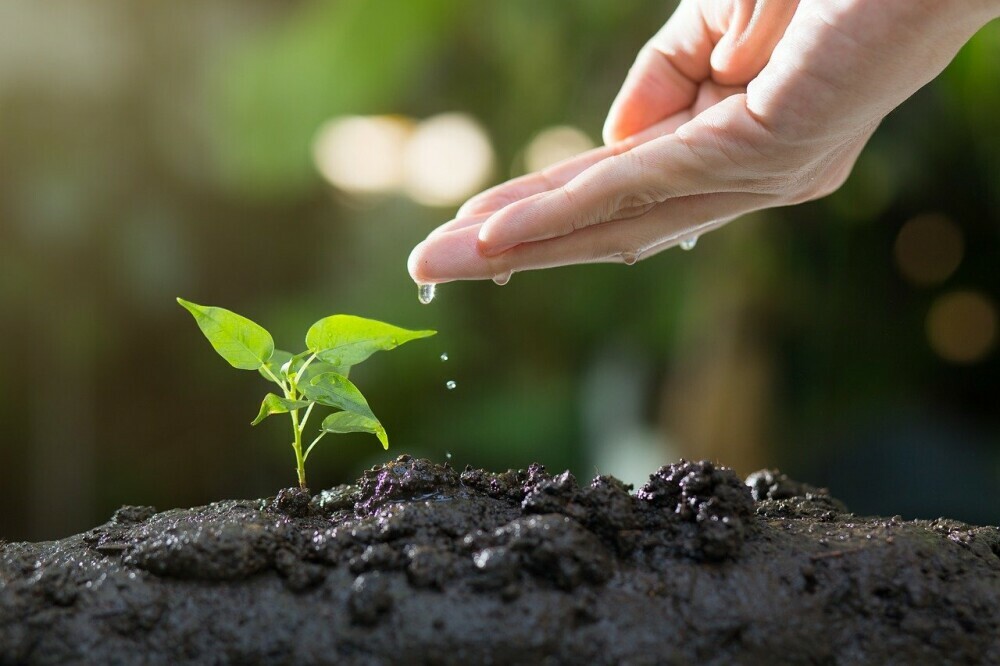Gardening, beyond its physical labor and bounty, holds a profound spiritual dimension. It’s a dance between human intention and the Earth’s response, a partnership that fosters growth not just in plants but in our own souls. This symbiotic relationship between spirituality and gardening has been cherished for centuries, offering not just sustenance but a deep, transformative connection to life itself.
Abundance in a Garden and Daily Life:
In a garden, abundance isn’t just about the harvest; it’s about the cycle of life, the continuous flow of energy that mirrors our own existence. Witnessing seeds sprout, flowers bloom, and fruits ripen teaches us about patience, trust, and the innate abundance of nature. Translating this to daily life, we realize that abundance isn’t just material wealth but a mindset rooted in gratitude and appreciation for the small miracles that surround us.
Gardening as Meditation:
The act of gardening, with its rhythmic tasks and intimate connection with the earth, is a form of meditation in motion. It invites us to be present, to focus on the task at hand, and to let go of distractions. This meditative quality brings mental tranquility, reducing stress and anxiety while fostering a sense of peace and clarity.
Physical and Spiritual Well-being:
The physical benefits of gardening, from increased exercise to exposure to fresh air and sunlight, align seamlessly with spiritual well-being. Tending to plants nurtures not just our bodies but also our souls, creating a holistic harmony that radiates throughout our being.
Appreciating Nature’s Miracles:
In the rush of modern life, we often overlook the small miracles that nature presents us daily. Through gardening, we learn to slow down, observe, and appreciate the intricate beauty of life unfolding in every leaf, petal, and stem.
Practical Tips for Starting a Spiritual Garden:
For those looking to embark on this journey, here are some practical tips:
- Begin with a clear intention or theme for your garden, such as healing herbs, native plants, or a meditation space.
- Cultivate mindfulness by engaging all your senses while gardening—observe colors, textures, scents, and sounds.
- Practice gratitude by acknowledging the gifts of each plant and the Earth’s abundance.
- Embrace sustainable practices like composting, water conservation, and natural pest control to honor the Earth.
Gardening as a Metaphor for Life:
The cycles of planting, growth, harvest, and rest in gardening mirror our own life journey. We learn about resilience from plants that weather storms and bounce back, about patience as we wait for seeds to sprout, and about letting go as we prune to encourage new growth. It becomes a metaphor for personal growth, reminding us that life, like a garden, is ever-evolving and cyclical.
Embracing Sustainability and Giving Back:
Lastly, a spiritually-oriented garden emphasizes the importance of sustainability and giving back to the Earth. By nourishing the soil, conserving resources, and respecting biodiversity, we honor our interconnectedness with all life forms and contribute to a healthier planet for future generations.
Gardening is not just a hobby or a means of sustenance—it’s a sacred practice that nurtures both our souls and the soil. It teaches us patience, mindfulness, gratitude, and resilience while fostering a deep sense of connection to the natural world. As we tend to our gardens, we also tend to our inner landscapes, cultivating a rich tapestry of spiritual growth and well-being.
Happy Homesteading
Faith xx

